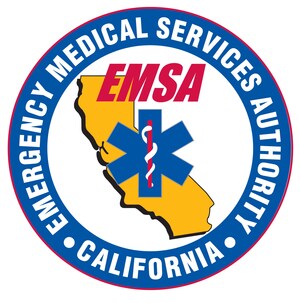BERKELEY, Calif., Jan. 24, 2022 /PRNewswire/ -- The CARESTAR Foundation today announced that it has awarded three grants totaling $2.25 million over three years to multi-agency collaboratives across California working to transform how individuals and communities - particularly residents who identify as Black, Indigenous, and/or people of color - engage, receive, experience, and/or recover from emergency and prehospital care.
Grant support to the following organizations and projects will catalyze new and better ways for all Californians to receive the most appropriate emergency and prehospital care when and where they need it, delivered by first responders and other healthcare providers who reflect the rich diversity of their communities.
Nuestra Comunidad (Sonoma County): $750,000 over three years for Project Lifeline, an initiative focused on creating systemic change in the Sonoma County 9-1-1 system to better serve all community members including immigrants, low-income residents, and people of color. Project Lifeline will engage in a two-pronged strategy that includes collecting and sharing residents' opinions, experiences, and fears about calling 9-1-1 with local EMS responders, and working with responders to understand and address these barriers. It will also inform and support underrepresented community members in navigating and engaging the 9-1-1 system promptly and effectively during an emergency. With its focus on building long-term trust and mutual respect between the community and EMS providers, a mentorship program for high school-aged students to support first responders in developing Spanish language skills will also be integrated into the project.
National Indian Justice Center (Sonoma County): $750,000 over three years to transform Sonoma County Native peoples and communities' experience with emergency and pre-hospital care. The project will bring together a network of key partners from tribal health organizations, local emergency services, tribal youth programs, and the Santa Rosa Junior College to share experiences, discuss challenges, and build trust toward improved local emergency and prehospital care. The project will result in a comprehensive plan for a Climate Ready Tribal Community Health Representatives (TCHR) training program in Sonoma County that will liaise with the Coastal Valleys Emergency Medical Services Agency (CVEMSA) and the local hospital.
Loma Linda University Health Department of Emergency Medicine, Riverside County Emergency Management Systems Agency (REMSA), and Inland Counties Emergency Medical Agency (ICEMA) (Riverside and San Bernardino counties): $750,000 over three years to create a comprehensive, community-centered program to provide emergent and sustained opioid treatment and service to individuals at risk for overdose in Riverside and San Bernardino counties. The Emergency Management Strategies to Decrease Opioid Deaths (EMSDOD) project will incorporate community voices in the design and implementation of the project to address racial inequities in treatment for addiction and help EMS providers better understand the local and cultural needs related to emergency services' response to drug overdoses. Building on an initiative called Leave Behind Naloxone, a key component of EMSDOD will be to add two Emergency Medicine Substance Use Navigators (EMSUN) trained to link individuals to wrap-around services in Riverside and San Bernardino counties.
Over 40 million California residents and visitors rely on effective emergency and prehospital care to provide help and save lives whenever a traumatic event or injury occurs, regardless of the precipitating cause (e.g., motor vehicle accident, gun violence, accidental fall, substance use, mental health crisis, wildfire, etc.)
The system responsible for providing this care is made up of a complex web of public and private agencies, independent communications systems, and a range of first responders and health care providers, all governed and influenced by local, state, and federal policies, regulations, and payors. This complexity coupled with California's uniquely diverse population of cultures, languages, and geographies provides both challenges and opportunities to ensure that all Californians receive the most equitable, unified, and compassionate emergency and prehospital care possible.
"Since the launch of CARESTAR four years ago, we have spent considerable time and effort to reach out to local communities, really listen to what they are saying about their experiences with emergency and prehospital care, and build meaningful relationships with organizations that share our vision," said Tanir Ami, CARESTAR Foundation CEO. "I am thrilled about these new partnerships because they represent the next phase of our work which is bringing community-based organizations into relationship with traditional emergency response agencies to transform this part of our California's healthcare system into the equitable, unified, and compassionate one we all need and want."
About the CARESTAR Foundation
The CARESTAR Foundation was founded in 2017 as a result of the sale of CALSTAR (California Shock Trauma Air Rescue), an air ambulance company, and honors CALSTAR'S legacy and lifesaving work in the field of emergency and trauma transport and care. CARESTAR's mission is to improve health outcomes for all Californians, by applying a racial equity lens to fund and advocate for improvements to emergency and prehospital care. www.carestarfoundation.org
SOURCE CARESTAR Foundation






Share this article